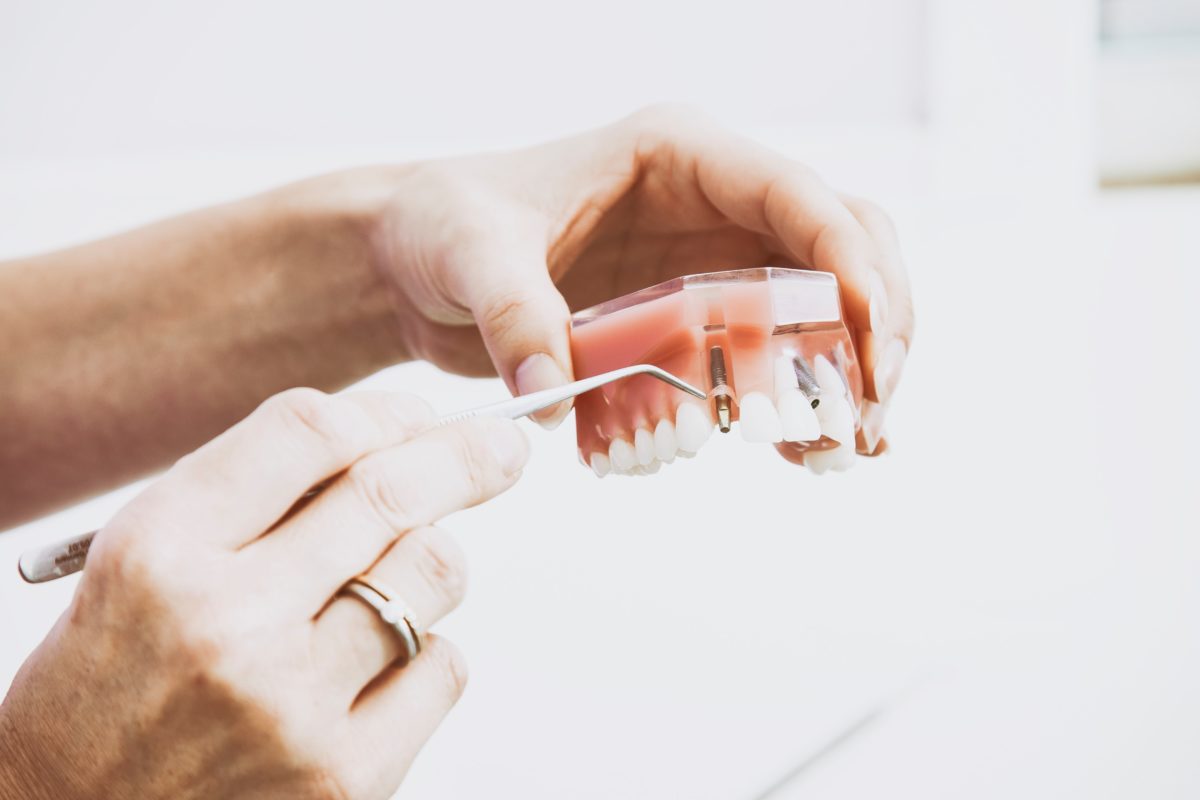Even if you lose your teeth, there is no need to lose hope; dentures can restore your smile and your confidence.
Removable dentures can be complete or partial, so, there is no limit to the number of teeth dentures can replace. Partial dentures can be metallic or purely acrylic.
The acrylic denture is usually an interim denture used before the definitive metallic denture.
The metallic denture has a metallic framework and metallic parts that sit on the remaining teeth.
WHAT TO EXPECT
Your dentist will introduce himself to you and discuss the procedure with you.
He will assess your oral health, he will also need to take radiographs of your jaws such as the panoramic radiograph or computed tomography scan.
If your teeth and jaw bones are in good condition to continue, he will place the implant into the jaw bones. Depending on the condition, you may require some orthodontic treatment or bone graft before the implant is placed. A bone graft is necessary when there is insufficient volume of bone in the jaw to support the implant.
The implant placement is a surgical procedure and will involve some drilling of the jaw bone. It is done under local anaesthesia.
After implant placement, your dentist may or may not place a crown immediately on the implant.
If he places a crown immediately, it will be a temporary one. A permanent crown cannot be placed until the implant has fused to the jaw bone.
Osseointegration (process of bone fusion to the implant) is absolutely necessary for success of a dental implant and takes about 3 months, or up to 6 months if a bone graft was done
After osseointegration is confirmed, your dentist will take an impression of the implants which will be used to make a model.
This model will be used to fabricate a permanent crown for the implants.
He will place a temporary crown after the impression, while the permanent crown is being fabricated in the laboratory.
Follow up visits will likely be every 3 months in the first year of implant placement and yearly after the first year.
.
POST-PROCEDURE CHECKLIST
- Inform your dentist of any concerns you may have
- Ensure you book your follow up appointment before you leave the clinic
- Good oral hygiene is absolutely important
- See the dentist immediately if you experience pain, any symptoms or if the implant becomes mobile
- Keep to your follow-up appointments
FAQ
How long do dental implants last?They can last for 25+ years if well cared for with good oral hygiene and regular dental visits.
Can everyone get an implant?Most adults can get implants but there are some instances in which an implant cannot be placed. Ask your dentist for more information on this.


